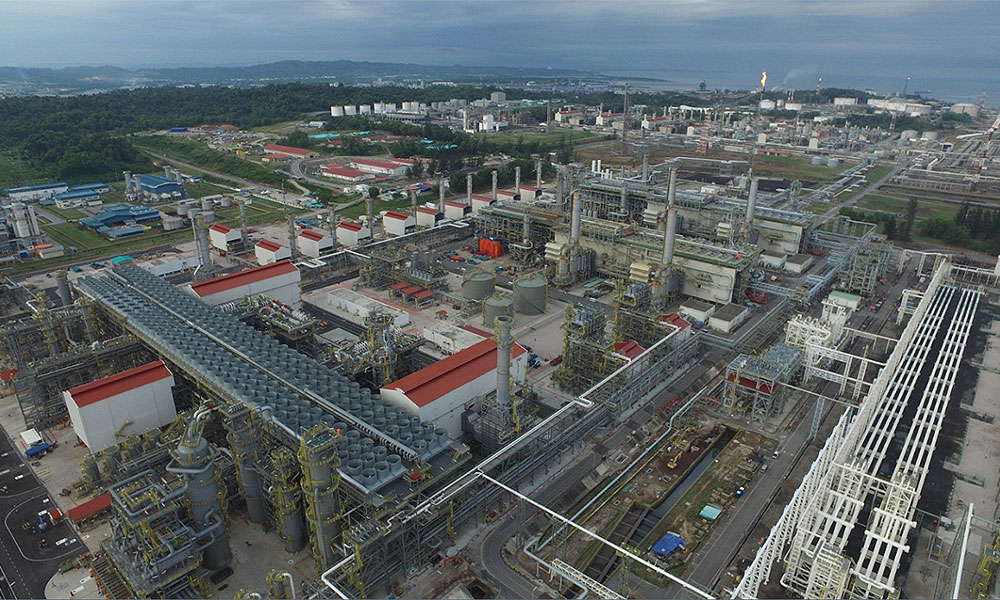COMMENT | On Friday, the Federal Court dismissed Petronas’ application for leave to challenge Sarawak’s aspirations to reassert regulatory control over its own oil and gas.
The Federal Court also struck out Petronas’ application for an order preserving the status quo which, at least for now, appears to enable Sarawak to proceed with its intention of implementing its own oil and gas regulatory regime by July 1.
As much as we welcome it, Sarawakians must be cautious in embracing the Federal Court decision.
Petronas’ leave application was dismissed solely on the grounds that the declaratory relief sought did not come within the exclusive original jurisdiction of the Federal Court.
With the Federal Court neither invalidating the Petroleum Development Act 1974 (PDA) nor affirming the Sarawak Oil Mining Ordinance 1958 (OMO) as the applicable law in Sarawak, the decision has left the door wide open for Petronas to file a fresh action in the High Court.
These laws go to the root of the dispute, as Sarawak – since the late Adenan Satem became chief minister – has sought to rely on the OMO in order to assume full regulatory and licensing authority over the oil and gas resources found within the state.
This, from Petronas’ perspective, comes into conflict with Sections 2 and 7 of the PDA which vests in it the “entire ownership in, and the exclusive rights, powers, liberties and privileges of exploring, exploiting, winning and obtaining petroleum whether onshore or offshore of Malaysia,” and empowers the prime minister as the sole regulatory authority over oil and gas.

Additionally, Regulations 3 and 5 of the Petroleum Regulations 1974 delegates licensing authority to the chairperson and chief executive of Petronas subject to the approval of the prime minister.
It is apparent that these provisions are conflicting and without any judicial clarification in respect of the same, the applicability of the PDA or OMO in Sarawak is up for debate.
In addition to the issue as to which law is applicable in Sarawak, there are also questions surrounding the OMO’s status as a pre-Malaysia Day enactment.
While laws enacted prior to Malaysia Day cannot be declared void on grounds of legislative incompetency, I have found some cases which suggest that pre-Merdeka laws and by analogy, pre-Malaysia Day laws, can be modified by legislative enactment or judicial interpretation in order to bring it into accord with the Federal Constitution.
The framework of the PDA
This raises the question as to whether the PDA can modify the OMO and if so, to what extent?
This, in my opinion, can only be answered if the demarcation of powers between Parliament and the state legislatures as set out in the 9th Schedule of the Federal Constitution is clarified by the courts.
Item 8(j) of List I (Federal List) of the 9th Schedule empowers Parliament to the exclusion of the state legislatures to enact laws in respect of the “development of mineral resources; mines, mining, minerals and mineral ores; oils and oilfields; purchase, sale, import and export of minerals and mineral ores; petroleum products; regulation of labour and safety in mines and oilfields.”
This, however, is not an unfettered power as it is expressly made subject to Item 2(c) of List II (State List) of the same schedule, which confers the state legislatures with competence to legislate on matters relating to “permits and licences for prospecting for mines; mining leases and certificates.”
Without answers to these questions, it is hard to conceive how Sarawak’s proposed regulatory regime can coexist with the current PDA framework.

Currently, it irrevocably grants Petronas entire ownership of the oil and gas in Sarawak subject to the company paying royalties to the state amounting to a paltry five percent of the proceeds from the sale of oil and gas extracted.
Court decision long overdue
I am of the view that judicial determination as to whether the subject matter of the PDA and OMO falls within the purview of the Federal or State legislatures is long overdue.
More importantly, there must be clarification as to the extent to which a state can enact licensing laws in respect of its oil and gas resources pursuant to Item 2(c) of the 9th Schedule.
If the PDA has encroached on this, Sarawak must seek judicial declarations that the offending provisions of the PDA are void on the grounds of legislative incompetency.
With the PDA already in the public eye, it is also an ideal time for Sarawak to revisit the constitutionality of the Territorial Sea Act 2012 (TSA).
Article 1(3) of the Federal Constitution explicitly safeguards the boundaries of Sarawak as those immediately before Malaysia Day and any alteration to such boundaries must be consented to by the State Legislative Assembly by virtue of Article 2(b).
Notwithstanding the fact that the State Legislative Assembly did not enact any laws consenting to the alteration of Sarawakian boundaries, the TSA has effectively reduced Sarawak’s territorial sea to a mere three nautical miles which significantly differs from its pre-Malaysia Day boundaries.
Prior to Malaysia Day, the boundaries of Sarawak included, by virtue of the Sarawak (Alteration of Boundaries) Order in Council 1954, the “continental shelf being the seabed and its subsoil which lies beneath the high seas contiguous to the territorial waters of Sarawak.”
To put that in perspective, the gas rich Luconia Shoals are located some 84 miles offshore Sarawak which, under the TSA, are far outside the boundaries of the state.
While it is understandable that most Sarawakians have viewed Petronas’ actions as hostile, I am of the opinion that the constitutionality of laws such as the PDA and TSA must first be addressed before we can state for certain the extent of Sarawak’s oil and gas rights.
JEREMIAH RAIS is a lawyer from Kuching. He was admitted to the Malaysian Bar in August 2017 and the Sarawakian Bar in February 2018.
The views expressed here are those of the author/contributor and do not necessarily represent the views of Malaysiakini.

